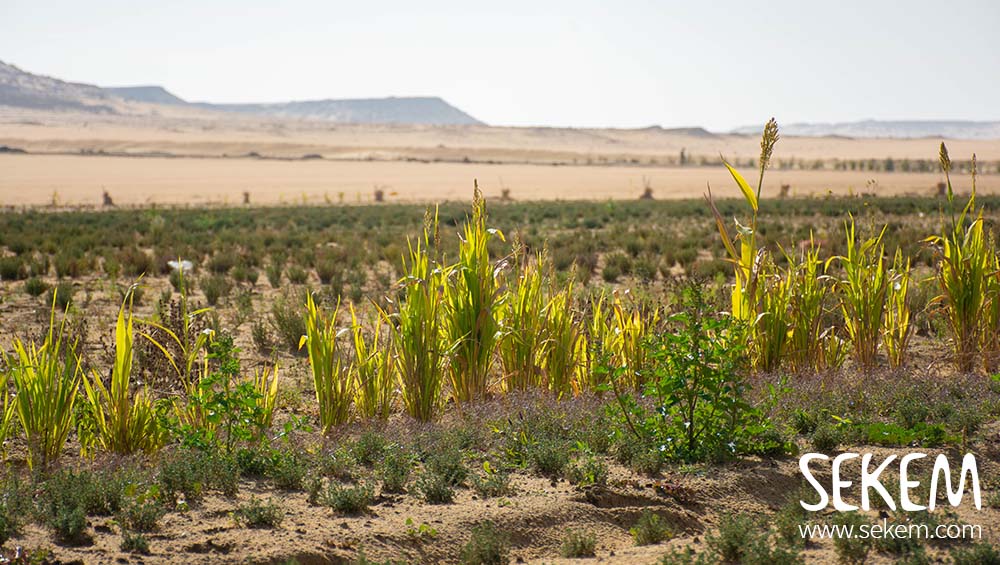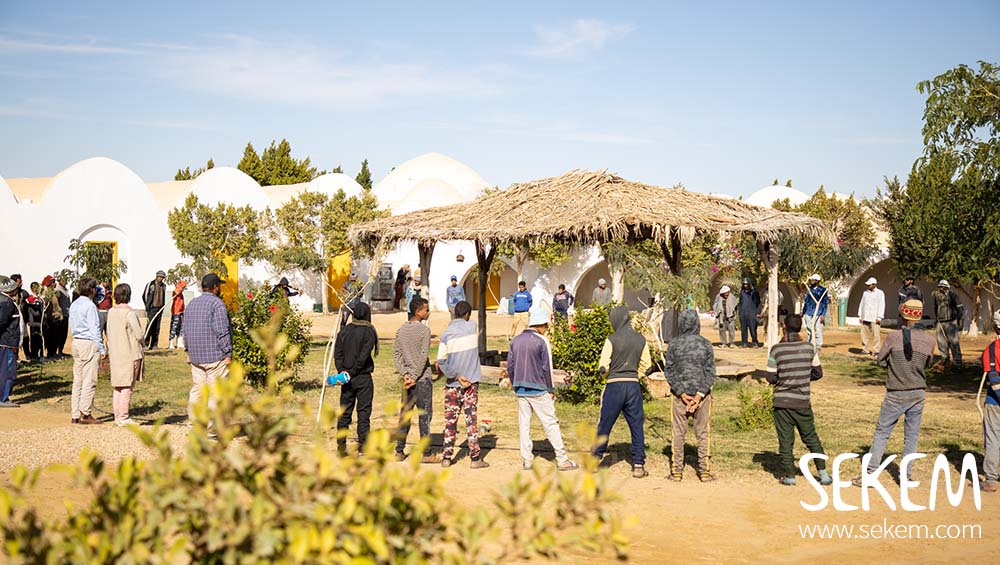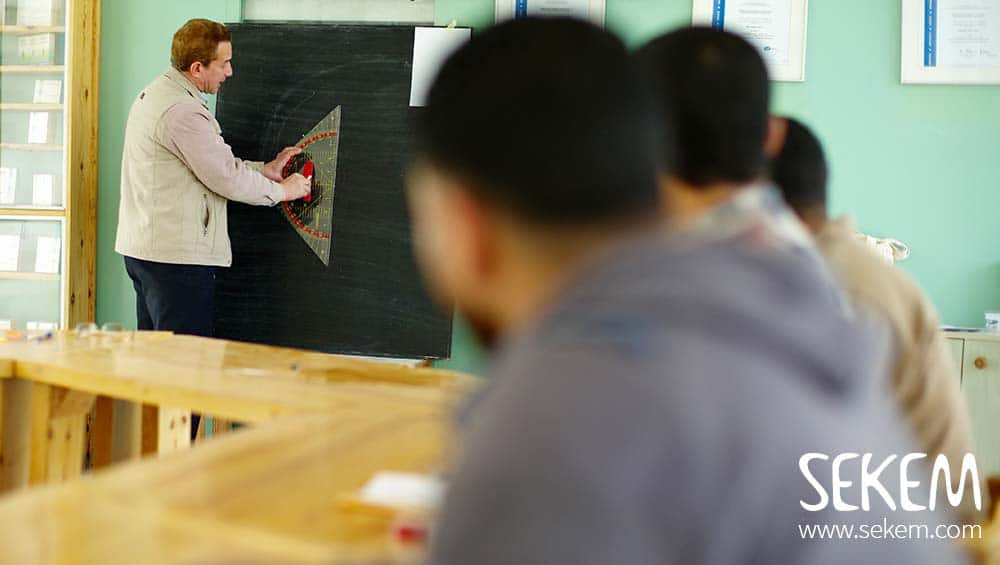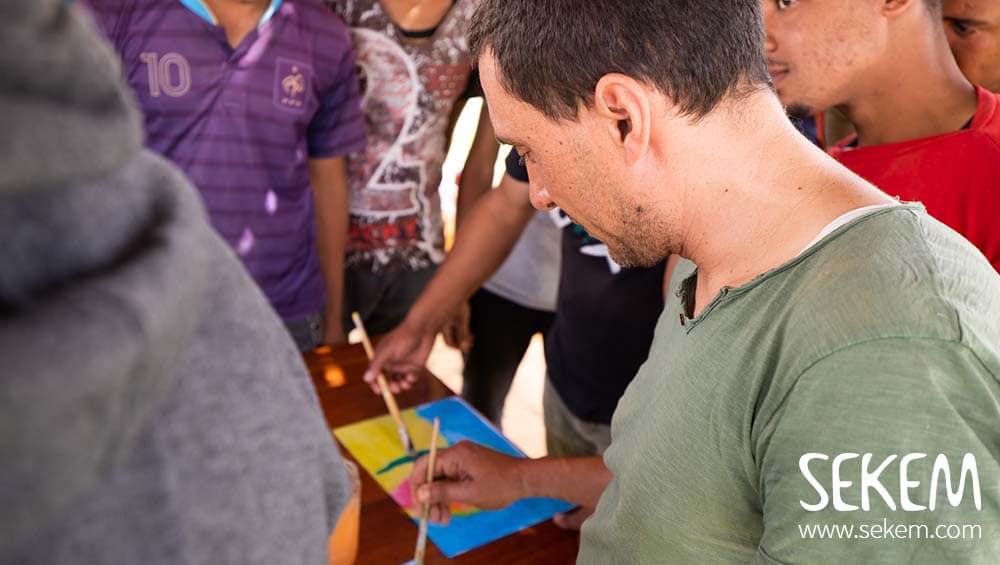Not only the barren fields are becoming greener day by day on the SEKEM desert farm in Wahat El-Bahareyya; the cultural offerings are also becoming more colourful and multifaceted. Around 70 people now live and work on the SEKEM Wahat Farm. Since 2019, SEKEM has been focusing in particular on greening the 1140 hectares of desert land and creating a versatile basis for life and development for as many people as possible. Hence, over 260 hectares of drouthy land have already been cultivated in the past months. But trees, green fields and colourful flowers are only one part of the SEKEM vision; of equal importance is offering opportunities for the development of the potential of all those people who cultivate the fields and shape the community life.
Shortly after the fields became greener and greener, the construction of an amphitheatre began. Since then, concerts, theatre and other performances have been held regularly against the atmospheric backdrop of the desert. Culture and education should be available to the people of Wahat from the very beginning. But although SEKEM has had experience with the integration and promotion of education and culture on the mother farm for several decades, many new challenges and necessities arise in the context of Wahat.

The desert climate in the south of the country, for example, requires a different work routine than in the north. The staff go out to the fields in the early morning hours; from midday onwards, hardly any activity is possible due to the heat. Thus, cultural activities mainly take place in the evening hours. “It is often difficult to plan and people are tired from the hard work under the hot sun,” knows Martina Dinkel, who coordinates the so-called “Core Program” in Wahat. “Therefore, we design the cultural activities more in open spaces and offers.” For example, there is an open studio where community members can come and be creative at any time. From time to time, artists are there to offer advice and support. Movement and exercises are regularly integrated into the daily work routine as it helps in particular to mobilise, wake up and support the muscles. A short exercise programme after the morning circle before work starts is particularly popular. “At first, we guided the exercises, but now the staff do it all by themselves. They notice how they benefit from this kind of mobilisation and how it makes them stronger for work,” Martina Dinkel reports.

Art and movement is by no means all that the cultural and educational programme has to offer. Long-standing and experienced teachers from the SEKEM school regularly come to Wahat and offer courses on topics such as geography, geology, history, English or literacy. Biodynamic agriculture and its philosophy are also taught with particular intensity.
On the one hand, the educational and cultural programme aims to be as comprehensive and varied as possible, but at the same time it offers very basic content for people who have received no or only little school education. There is still a relatively high number of them, especially in the rural regions of Egypt.

The Wahat community also benefits from a diverse exchange. For example, students from the SEKEM Vocational Training Centre come to the desert farm, as do university students and international guests. The so-called “community-based learning” program aims to create synergies in the conviction that an exchange of different competences and insights into other focus areas are helpful and promising.
In the first months of 2021, the SEKEM Friends Association Germany focused on the area of education and cultural promotion and supported the activities in Wahat with a large part of the donations. And such help is still needed. Because the organisation of culture in the desert is complex and generates costs that the young community in Wahat cannot yet bear themself. In addition, the program shall be expanded so that the people in the surrounding area can also benefit from it.
Do you want to join in and support the Wahat community? Click here:

